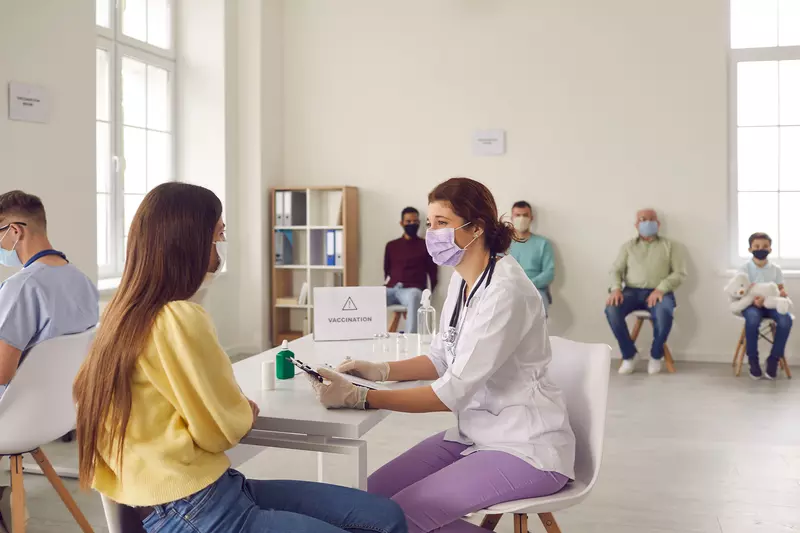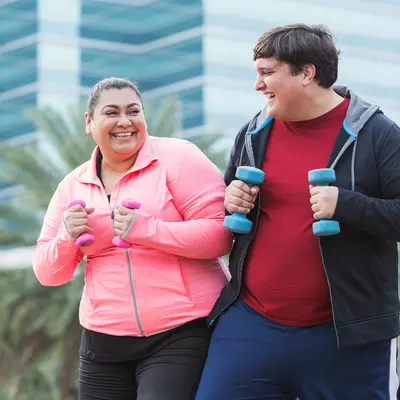- AdventHealth

The Food and Drug Administration has approved Pfizer’s COVID-19 vaccine, a significant achievement for public health.
Creating a new vaccine can sometimes take years. However, many pharmaceutical companies were able to quickly advance their development and distribution processes for the COVID-19 vaccines this year with the Emergency Use Authorization (EUA) process. EUA means the vaccine can be approved by the FDA quickly compared to a traditional FDA-approval process, but that doesn’t mean it cuts corners when it comes to evaluating vaccine data, risks and benefits.
In order to use the EUA process, all vaccines still had to meet rigorous standards set by the FDA, meaning they’re safe and that they work. Now, with the official FDA approval of the Pfizer vaccine, we can be even more confident that the vaccine meets their extremely high standards of safety, quality and effectiveness.
The Clinical Trial Process
The vaccines currently being administered in the United States got to this stage based largely on their clinical trial process. Once the vaccine application is approved, the vaccine can begin testing in clinical trials on adult volunteers. Clinical trials are conducted in three phases, and by Phase 3, where many trials stand at this point, the trial enlists thousands of people to learn more about how the vaccine works and how their immunity to the disease compares to those who have not received the vaccine.
This stage is important for providing the information the FDA needs to approve the vaccine. At any stage, if the vaccine doesn’t seem to be safe or effective, the FDA may stop the study.
During a public health emergency, the FDA can use what they call an Emergency Use Authorization (EUA) authority to allow the use of unapproved products to treat or prevent serious, life-threatening diseases, such as coronavirus.
According to the FDA, before they can issue an EUA for a vaccine, the Secretary of Health and Human Services must make a declaration of emergency or threat to justify authorization of emergency use.
The FDA also explains that an EUA is a different standard than an FDA approval; however, in the case of an investigational vaccine developed for the prevention of COVID-19, both require submitting extensive data demonstrating the vaccine’s safety and effectiveness.
What is Emergency Use Authorization?
While technically a vaccine needs to have FDA approval before the public can receive it, because COVID-19 is considered a public health emergency, vaccine manufacturers chose to submit a request for an EUA.
EUA was initially established after the September 11, 2001 terrorist attacks to ensure that potentially lifesaving medical products could be made available during an emergency before being approved by the FDA.
In order to issue an EUA, it needs to be proven that the vaccine may be effective in preventing a serious or life-threatening condition, and that the vaccine’s known and potential benefits can outweigh its known and potential risks. The FDA has said that in order for a COVID-19 vaccine to be administered to the public, including healthy people, they will only issue an EUA if a vaccine has demonstrated clear and compelling effectiveness in a large Phase 3 clinical trial.
How Can a Vaccine Get FDA Approval?
After the three phases of clinical trials are complete, the vaccine manufacturer must present data to an FDA review team that proves the vaccine is safe and effective and that its benefits outweigh any risks.
Once a vaccine is approved, it must be properly labeled with its risks and benefits, as well as its correct use, so health care providers can share this information with their patients.
Before an approved vaccine can get distributed to the public, the manufacturer must test all batches of the vaccine, called lots, for safety, potency and purity. The FDA reviews this information before the lots can be released. The FDA also routinely inspects the facilities where the vaccines are produced to ensure the product’s safety and quality.
The Pfizer vaccine has finished and passed this rigorous process.
Staying Safe
With FDA- and EUA-approved vaccines now widely available to everyone age 12 and older, the best way to protect you and your family is by getting yours and encouraging theirs. Continue to follow basic steps like social distancing and wearing a mask. Also, keep practicing the safety steps you already know, like:
- Avoiding touching your eyes, nose and mouth
- Cleaning and disinfecting frequently touched surfaces daily
- Getting your annual flu shot
- Staying at least 6 feet apart from anyone outside your household
- Washing your hands often with soap and water or using sanitizer often
- Wearing a mask that covers your mouth and nose when around others
We’re Here for You and Your Family
As more information on COVID-19 treatments become available, we’ll keep you informed. Stay in the loop by visiting the Coronavirus Resource Hub. Get your shot — encourage their shot!



